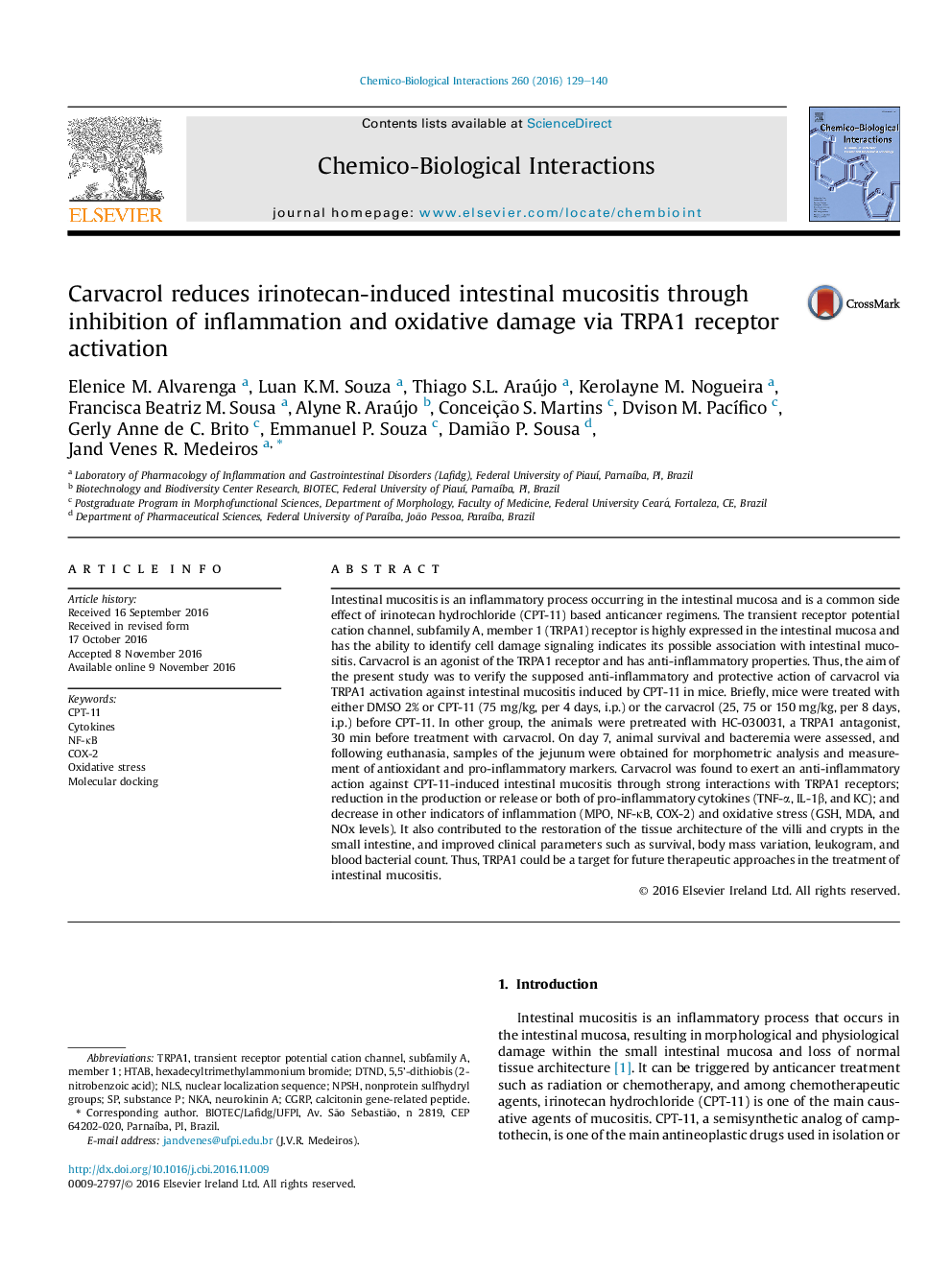| کد مقاله | کد نشریه | سال انتشار | مقاله انگلیسی | نسخه تمام متن |
|---|---|---|---|---|
| 5559398 | 1561582 | 2016 | 12 صفحه PDF | دانلود رایگان |

- Carvacrol reduced the production and/or release of inflammatory markers (TNF-α, IL-1β, KC, MPO, NF-κB and COX-2).
- Carvacrol reduced the oxidative stress (GSH, MDA, and NOx levels).
- CPT-11-induced intestinal mucositis is reversed by carvacrol (âvilli height and crypt depth).
- Carvacrol reduces intestinal mucositis by strong interaction with TRPA1 receptors.
- TRPA1 could be a target for future therapeutic approaches in the treatment of intestinal mucositis.
Intestinal mucositis is an inflammatory process occurring in the intestinal mucosa and is a common side effect of irinotecan hydrochloride (CPT-11) based anticancer regimens. The transient receptor potential cation channel, subfamily A, member 1 (TRPA1) receptor is highly expressed in the intestinal mucosa and has the ability to identify cell damage signaling indicates its possible association with intestinal mucositis. Carvacrol is an agonist of the TRPA1 receptor and has anti-inflammatory properties. Thus, the aim of the present study was to verify the supposed anti-inflammatory and protective action of carvacrol via TRPA1 activation against intestinal mucositis induced by CPT-11 in mice. Briefly, mice were treated with either DMSO 2% or CPT-11 (75 mg/kg, per 4 days, i.p.) or the carvacrol (25, 75 or 150 mg/kg, per 8 days, i.p.) before CPT-11. In other group, the animals were pretreated with HC-030031, a TRPA1 antagonist, 30 min before treatment with carvacrol. On day 7, animal survival and bacteremia were assessed, and following euthanasia, samples of the jejunum were obtained for morphometric analysis and measurement of antioxidant and pro-inflammatory markers. Carvacrol was found to exert an anti-inflammatory action against CPT-11-induced intestinal mucositis through strong interactions with TRPA1 receptors; reduction in the production or release or both of pro-inflammatory cytokines (TNF-α, IL-1β, and KC); and decrease in other indicators of inflammation (MPO, NF-κB, COX-2) and oxidative stress (GSH, MDA, and NOx levels). It also contributed to the restoration of the tissue architecture of the villi and crypts in the small intestine, and improved clinical parameters such as survival, body mass variation, leukogram, and blood bacterial count. Thus, TRPA1 could be a target for future therapeutic approaches in the treatment of intestinal mucositis.
259
Journal: Chemico-Biological Interactions - Volume 260, 25 December 2016, Pages 129-140